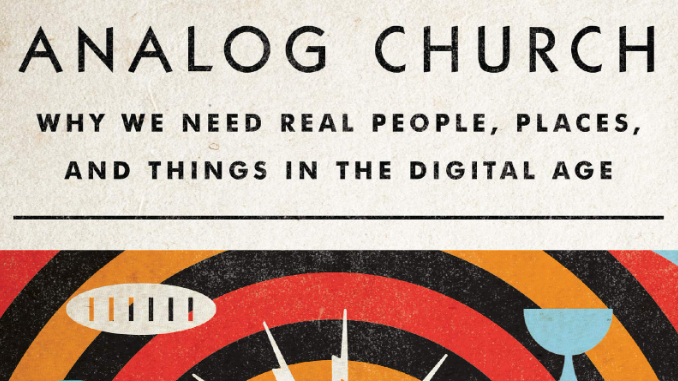
Also by this author: Analog Christian: Cultivating Contentment, Resilience, and Wisdom in the Digital Age
Published by IVP on March 31, 2020
Genres: Non-Fiction, Christian Life, Theology
Buy on Amazon
Goodreads

What does it mean to be an analog church in a digital age? In recent decades the digital world has taken over our society at nearly every level, and the church has increasingly followed suit--often in ways we're not fully aware of. But as even the culture at large begins to reckon with the limits of a digital world, it's time for the church to take stock. Are online churches, video venues, and brighter lights truly the future? What about the digital age's effect on discipleship, community, and the Bible? As a pastor in Silicon Valley, Jay Kim has experienced the digital church in all its splendor. In Analog Church, he grapples with the ramifications of a digital church, from our worship and experience of Christian community to the way we engage Scripture and sacrament. Could it be that in our efforts to stay relevant in our digital age, we've begun to give away the very thing that our age most desperately needs: transcendence? Could it be that the best way to reach new generations is in fact found in a more timeless path? Could it be that at its heart, the church has really been analog all along?
In Analog Church: Why We Need Real People, Places, and Things in the Digital Age, Jay Y. Kim shares a unique and helpful perspective on digital culture and Christianity, arguing that when churches adopt technology for the sake of relevance, they alienate the very people they are trying to reach. Churches often conduct their outreach with an advertising mindset, trying to reach the younger generation with their “product,” but because young people feel jaded towards consumer culture, this approach backfires. What young people are really seeking isn’t a high-energy rock concert, but a sense of transcendence within a meaningful community.
Kim argues that even though some forms of technology can enhance embodied gatherings, technology also distracts and distances people from one another. Throughout this book, he shares secular research findings about the impact of technology and explores the unintended consequences of common church-growth strategies, urging pastors to recapture healthy philosophical views of what worship, community, and Scripture-reading really mean. In the later chapters, he provides robust, clear examples of how Christians can recapture an embodied, transcendent faith, and best of all, he does this in a way that is accessible to a variety of church sizes and denominations, encouraging pastors to think through their local context instead of imitating whatever practices other successful churches are promoting.
Analog Church is a wonderful, timely resource for both pastors and laypeople who are reevaluating their ministry philosophies in light of COVID-19. Even though Kim’s writing predates the pandemic, his reflections on the role of technology in worship answer a lot of different questions that people are thinking through right now, and this book can be a wonderful tool for pastors and congregations as they evaluate what they will do differently in the future as they prepare to gather again.



